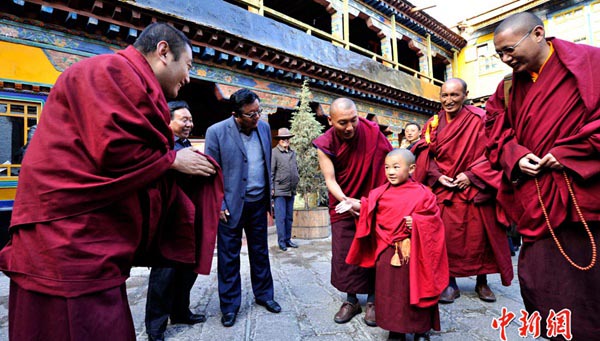
(TibetanReview.net, Mar11, 2017) – China said Mar 10 that it had approved more than 60 “Living Buddhas” of Tibetan Buddhism in Tibet Autonomous Region (TAR) during the past one year, according to the country’s official Xinhua news agency Mar 10. The statement was part of the TAR’s annual report at the ongoing annual National People’s Congress, or Parliament, session of the People’s Republic of China which began in Beijing on Mar 5.
“Living Buddha” is a Chinese term for the Tibetan word “Tulku”, which refers to people who are believed to have attained enlightenment but who continue to take rebirth – or reincarnate – themselves to help sentient beings. Atheist Chinese law requires all reincarnations of Tibetan Buddhism to be approved by the Communist Party of China government, with the top “Living Buddhas” like the Dalai Lama and Panchen Lama being required to receive direct sanction from Beijing.
The report, released Mar 10 during a panel discussion of national lawmakers from TAR, was cited as saying over 1,700 ethnic and religious activities were held in a peaceful and orderly manner without any incident, including ones undermining public security.
The report was also cited as saying that though the TAR was geographically distant from Beijing, “the hearts of people of all ethnic groups in Tibet are always together with the Communist Party of China Central Committee with Comrade Xi Jinping as the core”.
During the panel discussion of national lawmakers from the TAR at the annual session of the National People’s Congress, the region’s Chinese boss, Wu Yingjie, was cited by another Xinhua report Mar 10 as saying Tibet was open to foreign journalists so long as they reported on the autonomous region in an objective and fair manner. “They objectively and accurately report the changes in Tibet, the blissful lives of the masses, Tibet’s ethnic unity and religious harmony,” Reuters Mar 10 quoted Wu as saying.


